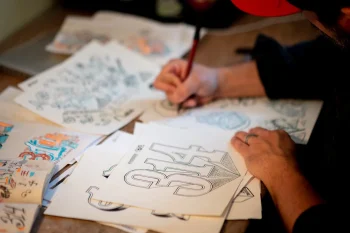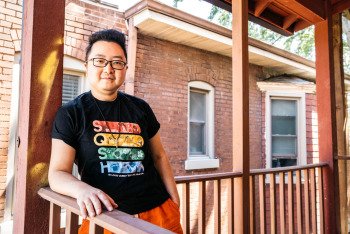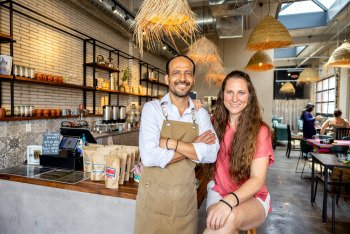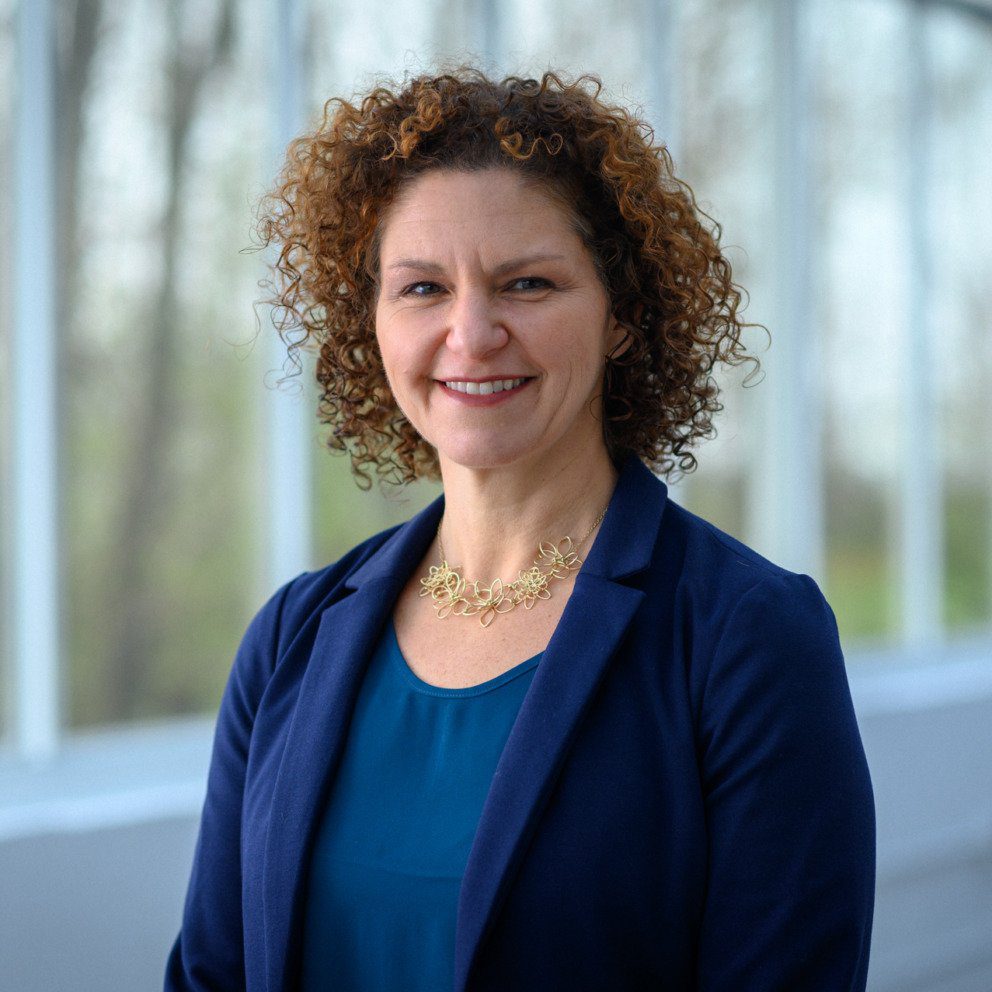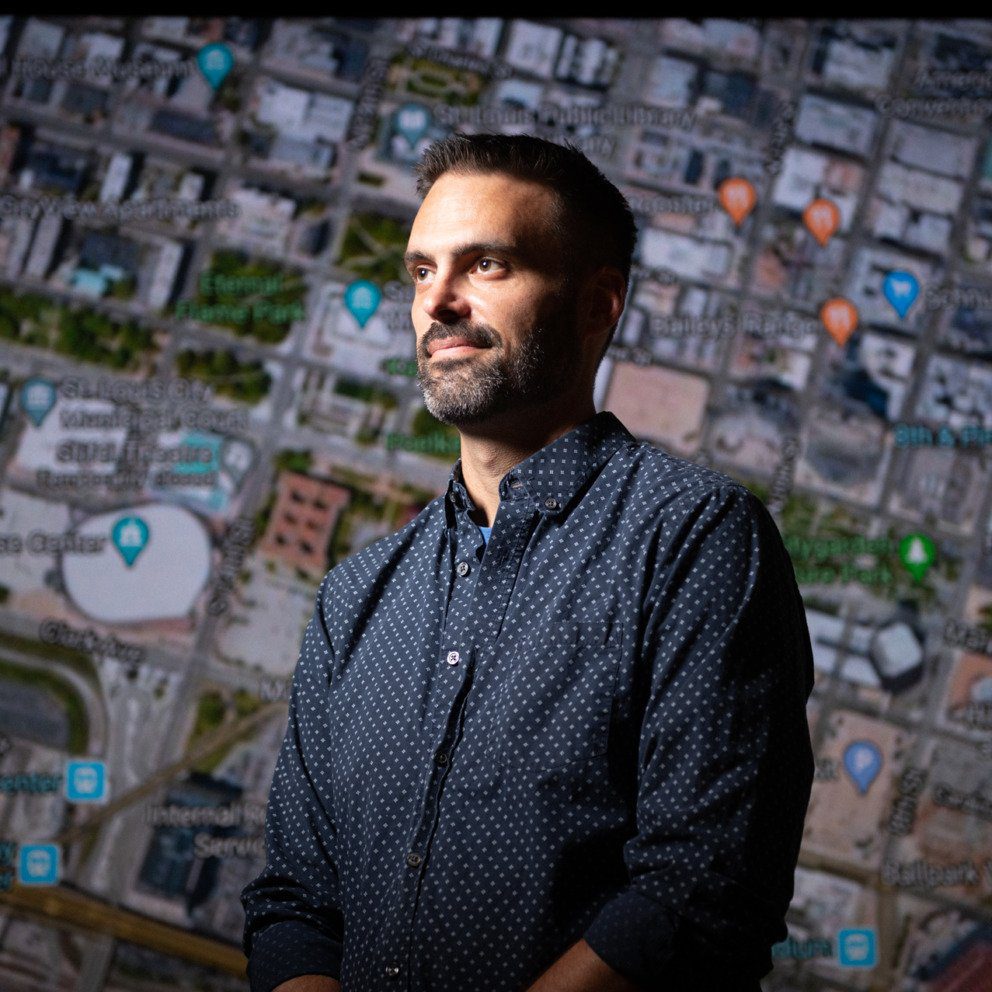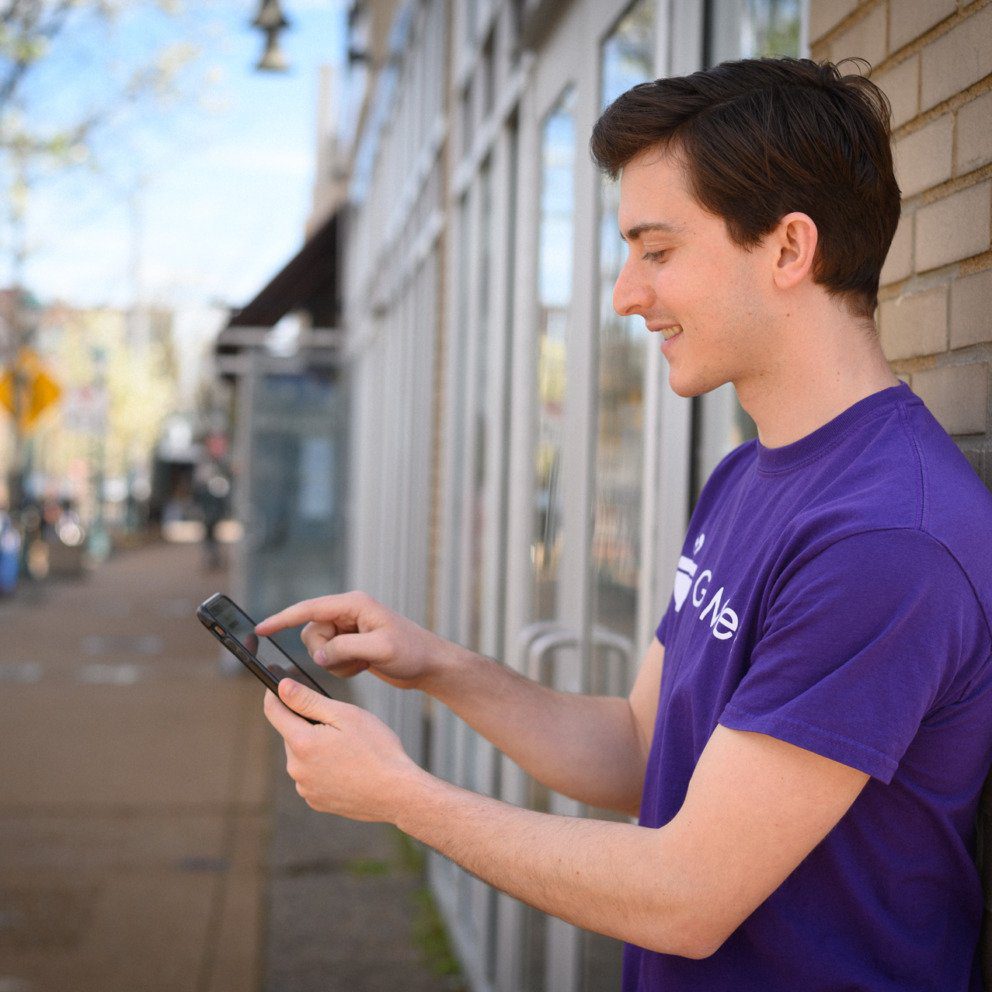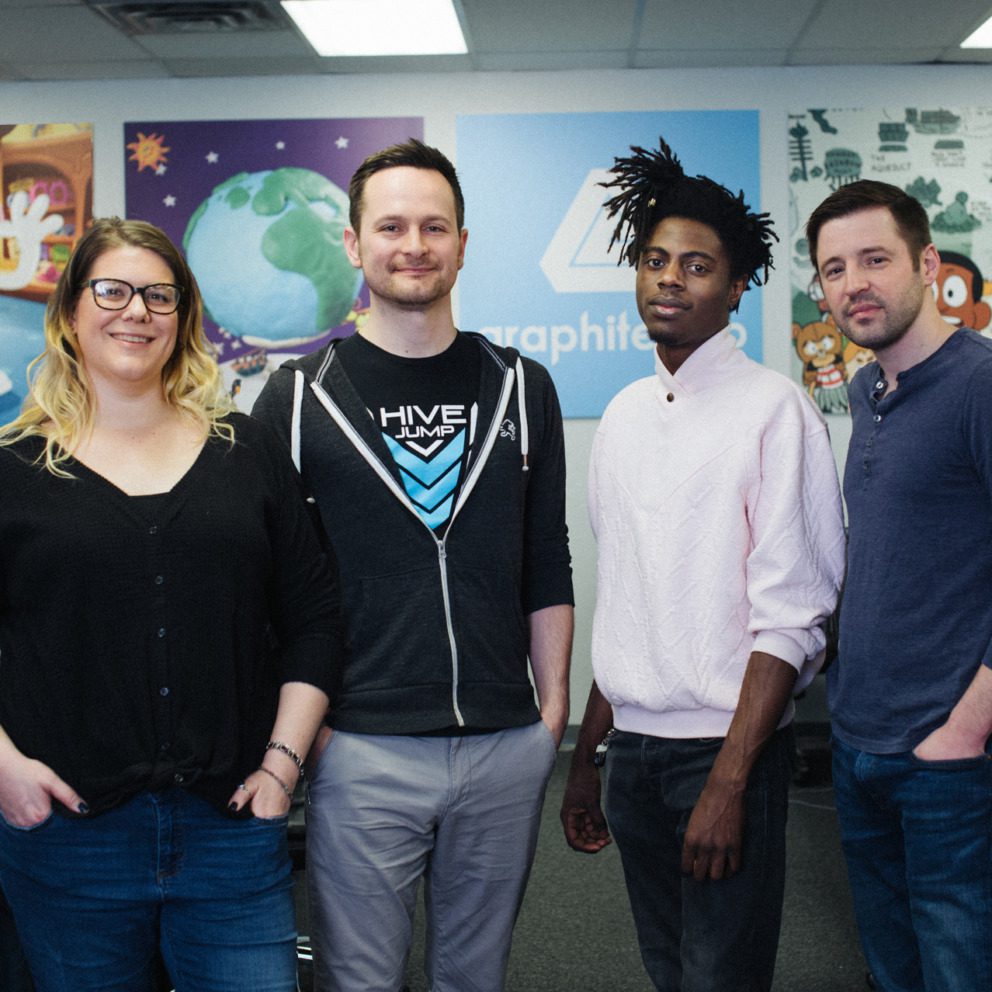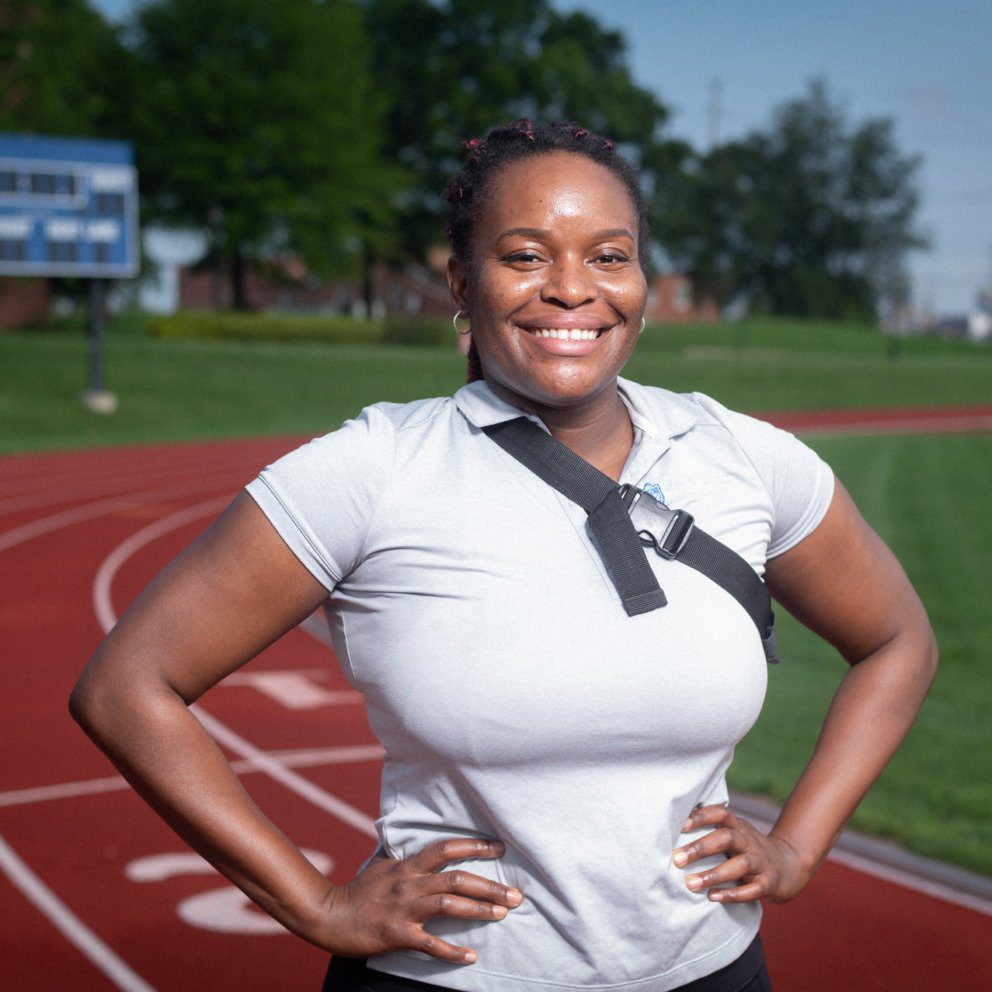Solving Challenges
Biotech startup PercayAI and Washington University are collaborating to find treatments for COVID-19, through the work of people like computational biologist Allyson Mayer.
Allyson Mayer remembers the moment it struck her just how much information was out in the world, yet how little was being gleaned from it. A Ph.D. student at Washington University, specializing in the cardiovascular and metabolic systems, Mayer was working on research when it hit her.
“I realized, ‘I just generated all this data myself; so did my classmates,’” Mayer recalls. “I remember thinking that we could solve any problem out there if we could analyze the data properly. The challenge is to make the best use of the data to make novel insights and connections.”
Now a computational biologist at St. Louis-based startup PercayAI, located in the Cortex Innovation Community, Mayer is realizing that goal of harnessing those massive sums of data to solve pressing problems in health care, most recently, the COVID-19 virus. It’s a path she didn’t expect to travel when she moved to St. Louis from Des Moines eight years ago to pursue her doctoral degree. However, the more she relied upon data science for her research, the more she realized its power to help people live healthier lives – the reason she went into health research in the first place.
Mayer believes she’s in the best position possible to help bring about such outcomes through her role at PercayAI, and by being part of St. Louis’ biotech community. Since its founding in 2019, PercayAI has been developing augmented intelligence technology that helps researchers make sense of vast sums of biological data to aid in drug discovery. For the past year-and-a-half, Mayer has been using the company’s software to help make these discoveries more quickly and accurately, something that could lead to major scientific breakthroughs.
“There is so much data generated quickly and cheaply,” Mayer explains. “It doesn’t always get used to its full potential, and there is also the problem of data being siloed into different institutions or companies. Being able to combine data of different types, generated by different groups, is to put the pieces together to see the big picture. This is one of the biggest challenges in research.”
– Allyson Mayer
Solving that challenge is what drew Preston Keller to PercayAI. Like Mayer, Keller came to St. Louis to pursue his Ph.D., and then MBA, from Washington University. After a career in finance that took him to Charlotte, North Carolina, Wall Street and Hong Kong, Keller found himself back in St. Louis with Millipore-Sigma. After seven years, he left the company to fundraise for Adarza Biosystems, then a small startup out of Rochester, New York that he helped bring to St. Louis, and eventually with a local venture capital firm, Kingdom Capital.
Thanks to its relationship with Washington University, Kingdom Capital was able to take important augmented intelligence drug discovery research coming out of the university and transform it from purely academic in nature into PercayAI. As Keller explains, the success of PercayAI can be thought of in terms of the strength of St. Louis’ overall innovation ecosystem – something he has watched grow over the past twenty years.
“I think of it as a three-legged stool,” Keller says of an innovation ecosystem. “You need world-class research and innovation, which you have at Washington University and Saint Louis University. You need world-class management that’s been there and done that to be able to incubate these companies, and you need access to capital – smart money at all stages to be able to build out companies and take them through their entire life cycles. We always had the science and universities but not a critical mass of management and capital. Now that it’s coming to fruition, we have the ability to build it.”
Keller believes that these developments in St. Louis’ startup scene have made the region better able to retain companies, as well as scientists like Mayer. No longer a place where people get their starts and then leave for the coasts, the St. Louis area now provides researchers the opportunities they need to make real impact.
“I’ve really appreciated more and more the longer I’ve been here, how unique St. Louis is as a mid-sized city that has so much strength in biotech and so much innovation,” Mayer says. “What I really like is this balance of so much that is going on and so many smart and driven people, with all of these amazing ideas that they are able to make happen, but it’s a small enough community with all of them integrated. I’m pretty early in my career, but I feel like I am able to be integrated into a community and have all of these opportunities.”
Mayer is particularly excited about the opportunity she has to help aid in the fight against COVID-19. Thanks to a partnership between PercayAI and Washington University’s Institute for Informatics, she is working with a team of scientists and informaticists that is taking all available research and clinical data, then using the company’s software to analyze and compare the information against the existing knowledge database to find connections that will aid researchers in identifying drugs that may already exist to help COVID patients. She’s especially hopeful that her efforts will yield relief for the “long-haulers” whose persistent symptoms have so far vexed researchers and physicians.
“It’s been exciting to be a scientist during a year when people are talking about science constantly,” Mayer says. “The biggest problems we are facing are ones that scientists are uniquely positioned to help with, and that’s been really cool, and also scary. One of the things I really like about the Cortex, Wash U, SLU geographical area is that there is so much energy being seated next to all these people doing exciting things. It’s an interesting experience working together more than ever but also doing so farther apart than usual. This whole year has been really exciting in science despite being a difficult year for other reasons. I’ve never seen so much quick work, motivation and sharing of results. It’s inspiring.”
Join the Story
- Learn more about PercayAI on their website.
- Keep up with the latest happenings at Cortex Innovation Community by following them on Facebook and Twitter.
- Interested in pursuing an advanced degree? Check out the offerings at Washington University and Saint Louis University.

